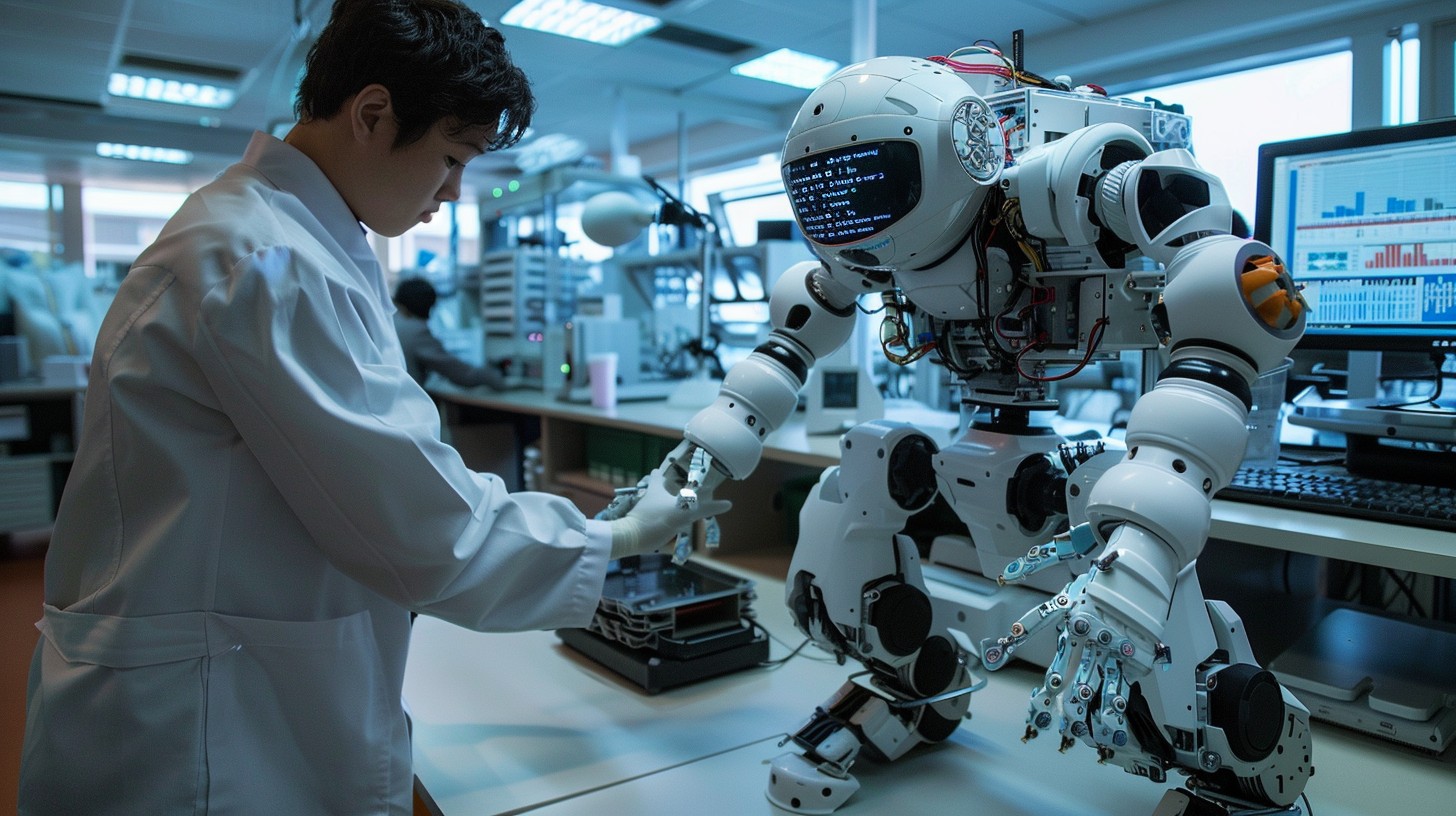Understanding Artificial Intelligence. Artificial Intelligence (AI) and Machine Learning (ML) are at the forefront of technological advancement, reshaping industries and everyday life. From enhancing business operations to driving innovations in healthcare and finance, these technologies are transforming how we interact with the world. This blog delves into the fundamentals of AI and ML, their applications, and their future potential.
What is Artificial Intelligence (AI)?
Artificial Intelligence refers to the simulation of human intelligence in machines designed to think and learn like humans. AI systems are capable of performing tasks that typically require human intelligence, such as problem-solving, reasoning, and understanding natural language. The field of AI encompasses a broad range of technologies and approaches, including:
- Rule-Based Systems: AI systems that use predefined rules to make decisions.
- Expert Systems: Programs that mimic the decision-making abilities of human experts.
- Neural Networks: Models inspired by the human brain that recognize patterns and make predictions.
What is Machine Learning (ML)?
Machine Learning is a subset of AI that involves the development of algorithms that enable computers to learn from and make decisions based on data. Unlike traditional AI systems, which rely on explicit programming, ML algorithms improve their performance over time through experience. There are several key types of ML:
- Supervised Learning: Algorithms learn from labeled data to make predictions or classifications. Examples include spam detection in emails and image recognition.
- Unsupervised Learning: Algorithms identify patterns and relationships in unlabeled data. Clustering and association are common techniques in this category.
- Reinforcement Learning: Algorithms learn by interacting with an environment and receiving rewards or penalties based on their actions. This approach is often used in robotics and game playing.
Applications of AI and ML
The impact of AI and ML is evident across various sectors. Here’s how these technologies are making a difference:
1. Healthcare
AI and ML are revolutionizing healthcare through enhanced diagnostics, personalized treatment, and drug discovery. AI-powered tools analyze medical images to detect conditions such as tumors and fractures with high accuracy. ML algorithms predict patient outcomes and suggest personalized treatment plans based on historical data.
2. Finance
In the financial industry, AI and ML are used for fraud detection, algorithmic trading, and risk management. AI systems analyze transaction patterns to identify suspicious activity and prevent fraud. ML models predict market trends and optimize trading strategies, offering a competitive edge to investors.
3. Retail
AI and ML enhance the retail experience through personalized recommendations and inventory management. Recommendation engines analyze customer behavior to suggest products tailored to individual preferences. ML algorithms optimize supply chain logistics, reducing costs and improving efficiency.
4. Transportation
Autonomous vehicles are one of the most exciting applications of AI and ML. Self-driving cars use a combination of sensors, cameras, and ML algorithms to navigate and make real-time decisions. AI-powered traffic management systems optimize traffic flow and reduce congestion.
5. Customer Service
AI-powered chatbots and virtual assistants are transforming customer service by providing instant responses and handling routine queries. These systems use natural language processing (NLP) to understand and respond to customer inquiries effectively.
Challenges in AI and ML
Despite their potential, AI and ML face several challenges:
1. Data Privacy and Security
The effectiveness of AI and ML algorithms depends on the availability of large datasets. Ensuring the privacy and security of sensitive data is crucial to prevent misuse and protect user information.
2. Bias and Fairness
AI systems can inherit biases present in the data they are trained on, leading to unfair or discriminatory outcomes. Addressing these biases and ensuring fairness in AI systems is a critical area of research.
3. Interpretability
Many ML models, especially deep learning models, are often referred to as “black boxes” due to their complex and opaque nature. Improving the interpretability of these models is essential for understanding their decision-making processes and ensuring accountability.
The Future of AI and ML
The future of AI and ML holds immense promise:
1. Advanced AI Systems
Future AI systems will likely become more sophisticated, capable of performing a wider range of tasks and understanding more complex contexts. Advances in natural language understanding and cognitive computing will drive more intuitive and human-like interactions.
2. Integration with Emerging Technologies
AI and ML will continue to integrate with emerging technologies such as the Internet of Things (IoT) and quantum computing. This convergence will lead to new applications and capabilities, further enhancing the impact of these technologies.
3. Ethical Considerations
As AI and ML become more integrated into society, addressing ethical considerations will be crucial. This includes ensuring transparency, fairness, and accountability in AI systems and developing frameworks for responsible AI development and deployment.
Table of Contents
Getting Started with AI and ML
For those interested in exploring AI and ML, several resources can help you get started:
1. Online Courses
Numerous online platforms offer courses on AI and ML, ranging from introductory to advanced levels. Websites like Coursera, edX, and Udacity provide access to high-quality courses from leading institutions and industry experts.
2. Books and Tutorials
Books and tutorials are valuable resources for learning about AI and ML concepts and techniques. Some popular titles include “Artificial Intelligence: A Modern Approach” by Stuart Russell and Peter Norvig and “Hands-On Machine Learning with Scikit-Learn, Keras, and TensorFlow” by Aurélien Géron.
3. Community and Forums
Joining online communities and forums dedicated to AI and ML can provide valuable insights and support. Platforms like Reddit, Stack Overflow, and specialized AI forums offer opportunities to connect with experts and enthusiasts.
Understanding Artificial Intelligence
Artificial Intelligence and Machine Learning are driving transformative changes across various sectors, offering new possibilities and efficiencies. As these technologies continue to evolve, they will shape the future of industries and everyday life. By understanding the fundamentals of AI and ML, their applications, and the challenges they face, you can better appreciate their impact and potential.
Stay informed about the latest developments in AI and ML to harness their benefits and navigate the future of technology with confidence.
